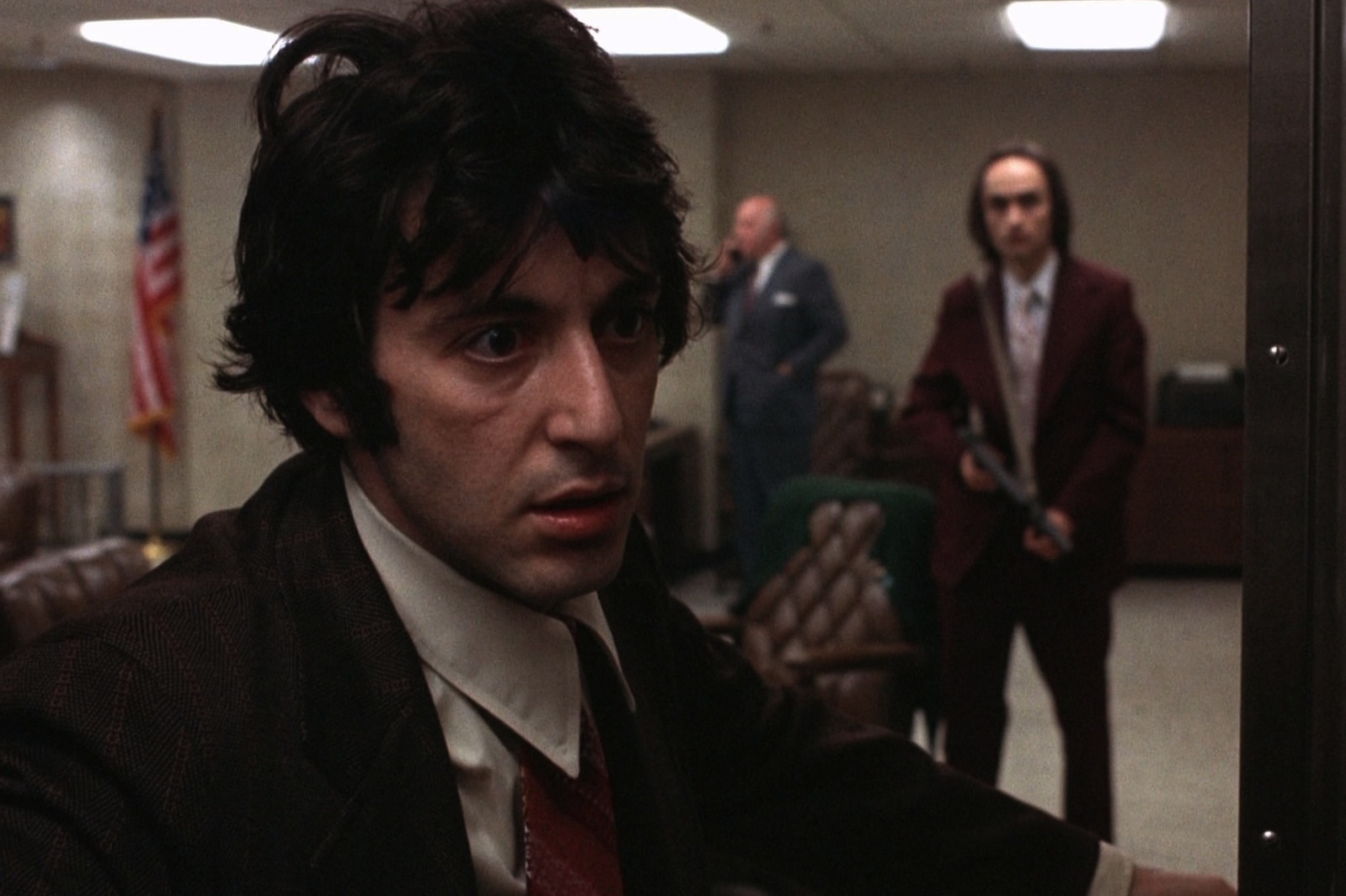Dog Day Afternoon is a lot like a good episode of The Jerry Springer Show. It has some criminals, a rowdy crowd and a married man who is stealing money to help pay for the sex-change operation of his extra-marital lover. Story of my life … but seriously.
Based on a true story, Dog Day Afternoon (1975) stars baby-face Al Pacino as Sonny Wortzick, a Brooklyn native who commits an impromptu bank robbery to help pay for his lover’s sex-change operation. The film chronicles the robbery from spontaneous conception to ultimate resolution.
Taking place almost entirely inside the bank and on the surrounding block, Dog Day Afternoon takes incredibly careful measures to unpack the main character and address one of the most bizarre crimes ever. As the film plays on, Wortzick transforms from a simple, religious and ambitious man in need of money into a neurotic, complex and unique societal phenomenon. We see his unusual treatment of hostages, his rock-star/bad-ass attitude toward a corrupt police force, his extraordinary motive for robbing the bank and his ultimate, unprecedented escape plan. Thousands of fans line the surrounding streets in support, but as Wortzick’s approval grows, so does his madness, and it is only a matter of time before things take an incredibly chaotic turn.
Director Sidney Lumet (Serpico and the recent Before the Devil Knows You’re Dead, starring Phillip Seymour Hoffman and Ethan Hawke) is really in top form here. This film is incredibly well paced. Lumet is able to evoke the adrenaline and anxiety of committing a crime while also providing the audience with the emotional and character elements necessary to connect with and care about Wortzick. The movie is never over-indulgent, and Lumet jerks us from one place to another, avoiding any melodramatics and cliché-ridden situations.
Lumet’s attention to detail throughout is phenomenal, even in the secondary and tertiary characters. Wortzick’s main partner in crime is Sal Naturile, (a brilliant John Cazale) who, despite his criminal activities, is a devout Catholic. In one instance, Naturile is sitting in a room full of hostages when one politely asks him for a cigarette. His response is quite bizarre. Out of nowhere, we swiftly see Naturile, a once-intimidating man with a gun, deconstruct as he attempts to persuade the hostage not to smoke or risk destroying her life. The scene is carefully crafted in such a way that Naturile never seems abrasive or over-assertive in his religious views.
In this incredibly awkward, yet incredibly constructed instance, Lumet shows us that these robbers have strong beliefs and profound opinions at their core, just like anyone else. As the film plays on, Lumet uses awkward interactions and subtle relationships to effectively show us that whatever we may view as criminal or immoral in nature is really just as profound and beautiful as anything else.
Yet, what truly ties it all together and makes this film worth watching is the Oscar-nominated central performance by Al Pacino. Although aided by how the film is constructed, Pacino never gives us too much information about Sonny Wortzick.
His performance is riveting, nuanced and internal, even in his most explosive moments. We are always surprised by his motives, his personality and his rationality in everything he does. He is hilarious at times, tragic at others and totally unique to his core. Dog Day Afternoon is definitive Pacino, and it truly solidifies why this actor is an icon of cinema and one of the best of all time.
I would recommend this movie if: 1) you’re an Al Pacino fan (this is as good, if not better, than his work in any of The Godfather films), 2) you like mostly character-driven movies with ample action, comedy and intense drama interspersed, and 3) you are somewhat open-minded to seeing older movies. This is a classic. It’s a time commitment but definitely worth it.
